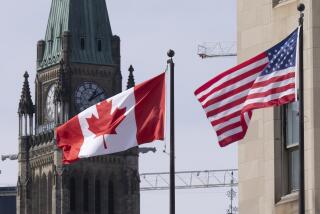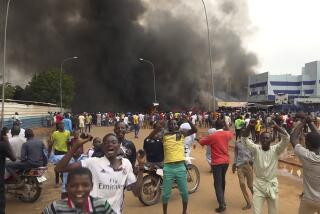U.S. State Department Warns to Avoid...
Africa
Congo: In light of recent developments, the U.S. Department of State has advised U.S. citizens to defer nonessential travel here at this time. Rebellious soldiers protesting the prime minister’s reassignment of military commanders took over the radio and television stations in mid-January, threatening to topple the government and restore the military to power. Last week, the prime minister formed a new government hoping to appease the soldiers. Further unrest is likely.
Niger: The State Department has issued an advisory cautioning U.S. citizens to defer nonessential travel to the desert areas in the northern part of the country due to continued bandit activity, including armed robberies of travelers and attacks against government posts. Extreme caution should be exercised if travel must be undertaken north of the city of Tahoua, including the districts of Tchin-Tabaradene, Arlit and Agaqdez. Street crime, particularly robberies, has increased substantially in the capital city of Niamey. Foreigners frequenting tourist areas are vulnerable to thieves and pickpockets, and should avoid walking the streets at night.
Algeria: The Jan. 12 cancellation of runoff elections in which Islamic fundamentalists were assured of winning a majority in parliament has created a political crisis. On Jan. 22, the government arrested the leader of the fundamentalist Islamic party, and the move could lead to significant unrest. Violence is possible, and travel throughout the country could be disrupted at any time. Exercise caution.
Chad: A rebellion in the area around Lake Chad has created a crisis for the government, and all travel to northern Chad should be avoided. There has been ethnic violence in the capital city of N’Djamena, and the possibility of further clashes between rival military factions exists. The southern provinces along the border with Cameroon and the Central African Republic have been calm.
Zimbabwe: The State Department warns that travel to extreme eastern Zimbabwe along the Mozambique border should be undertaken with caution. In past years, there have been frequent incursions by rebels from Mozambique, but such incidents have diminished and Gonarezhou National Park in the southeast has been reopened. The State Department recommends contacting the U.S. Embassy in Hirare before traveling near the eastern border.
Asia
India: A statewide election in the Punjab is scheduled Feb. 19 for a new regional assembly and 13 parliamentary seats. The last two elections in the state were canceled because of a rash of violence by Sikh militants fighting to create an independent Sikh homeland. A band of separatists recently attacked a group of Hindu supremacists marching the length of India for national unity, killing five and injuring 16. More violence in the weeks preceding this election, especially in the war-torn northern states of Punjab and Kashmir, is possible. In the past, targets for violence have often been public trains and buses.
Sri Lanka: Fighting between Tamil militants and government forces continues in the north and east, and travel to these regions should be avoided. The central hill regions and the beaches in the south and west are calm, and travel here is possible without unusual difficulties. The political situation remains volatile, however, and travelers should be aware that acts of terrorism could occur at any time throughout the country, including in the capital city of Colombo.
Southeast Asia
Burma: Insurgent activity is increasing throughout the country and, as a result, armed security forces are often on the streets of major cities, where an 11 p.m.-4 a.m. curfew is in effect. Exercise caution.
Philippines: Volcanic ash deposited by the June eruption of Mt. Pinatubo has created a threat of mud flows that can inundate low-lying areas and wash out bridges in the region nearby. The threat may persist for years and travelers should exercise caution in this region during periods of heavy rain.
Central America
Nicaragua: According to the State Department, petty crime is increasing in the capital city of Managua, particularly on crowded buses. Travelers should stay alert and protect wallets and purses. Incidents of banditry in the countryside have increased, and travel even on main roads between Nicaragua and Honduras remains potentially dangerous. Travel after dark outside of Managua should be avoided.
For more information on safety concerns in countries you may be visiting, contact the Citizens Emergency Center, U.S. Department of State, Washington, D.C. 20520, (202) 647-5225.
More to Read
Sign up for Essential California
The most important California stories and recommendations in your inbox every morning.
You may occasionally receive promotional content from the Los Angeles Times.










